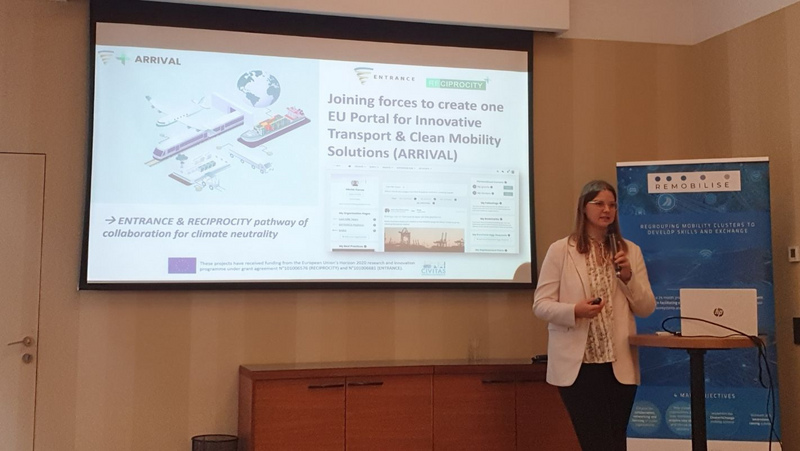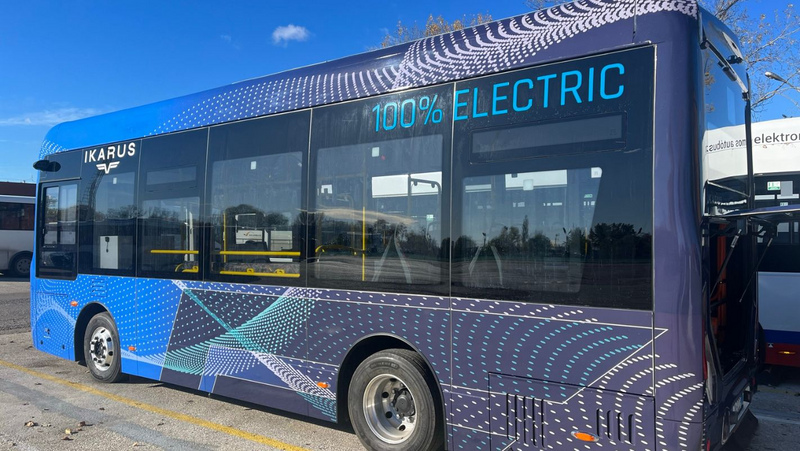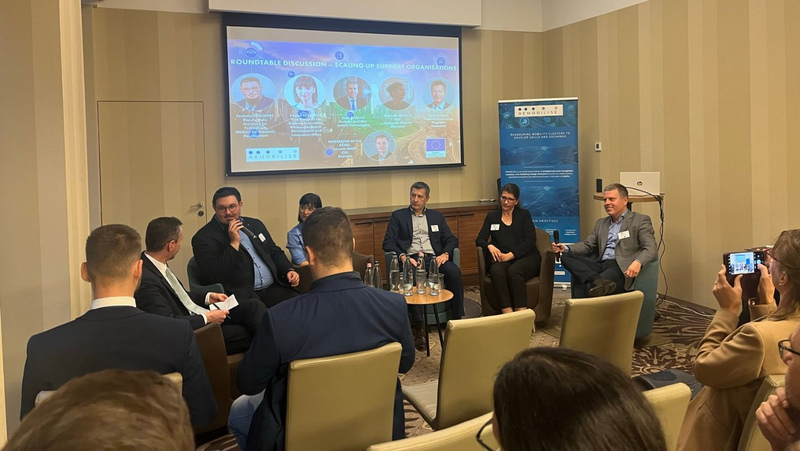The problems of our cities suffocating under accelerated urbanisation, the obstacles of outdated infrastructures with hundreds of years of legacy, and the limits of sustainable mobility solutions are exciting challenges that call for increasingly urgent answers. We do not have instant answers, but we do have accumulated knowledge. The event series of the third mission of the REMOBILISE project, bringing together innovation clusters from several European countries, aimed to explore these issues with the contribution of international and national industry players, sector decision-makers and experts. In addition to knowledge sharing, REMOBILISE and the event series aim to connect players in the national and European e-mobility ecosystem and promote cooperation opportunities – said Veronika Erős, Vice President of the EIT Urban Mobility Knowledge and Innovation Community, International Association and Business Development Manager of ZONE Cluster. The Hungarian partner of the international project and the organiser of the Budapest event is ZONE Cluster.
The decade ahead will also bring a paradigm shift in sustainable mobility. This is especially true now when artificial intelligence is opening up daily the space for innovative solutions that, even a year ago, were an insurmountable barrier for researchers and companies. The 21st century’s revolutionary forms of mobility, intelligent transport systems and top technological solutions are already in our hands. Still, in many cases, the infrastructure, the development of the sector’s ecosystem, and the legal and regulatory framework still need to catch up with this transformation. In recent years, increasingly strict environmental regulations have been introduced to reduce carbon emissions. As a result, EU environmental regulations for motorised vehicles are also changing, which means that the automobile and component manufacturing industry is changing. In addition to the tightening climate policy regulations, several other trends affecting the automotive sector – digitalisation, generational change, etc. – can be identified that influence the functioning of automotive supply chains. Self-driving cars, intelligent bicycles and self-learning drones are within reach for almost all of us, but their safe use and mass deployment will depend to a large extent on the institutional framework, the financing environment and, last but not least, the strategic nationwide energy base.
„Modern industries will be green and high-tech,” said Dr Ádám Nagy, Deputy State Secretary for Industry, in his presentation. „The share of alternative propulsion vehicles is steadily increasing in both the global and EU markets, and this trend is expected to continue until 2030. Hungary is striving to provide a safe meeting place for the sector; automotive suppliers closing down in Germany are reopening in our country and forming value chains with Asian companies. The battery industry is what makes the Hungarian automotive ecosystem outstanding and unique in Europe. According to BloombergNEF’s research on capacity expansion, Hungary has a good chance of becoming the world’s 4th largest battery producer. At the same time, the goal is to create a sustainable, socially acceptable battery value chain,” he stressed.
Hungary is committed to achieving carbon neutrality by 2050. To reach this target, 3-4% of domestic GDP should be reinvested in the economy over three decades, and the development of the battery and automotive industries is a cornerstone for successfully fulfilling this commitment. The process is naturally part of the EU context, so promoting cooperation between Western and Eastern EU countries is a priority. The Hungarian battery industry has grown exponentially over the last five years, and a significant battery value chain has been established in the domestic economy, mainly due to nearly €20 billion of foreign direct investment. The Hungarian Battery Association’s primary objective is to support the implementation of the government’s battery strategy,” said Péter Kaderják, CEO of the Hungarian Battery Association and former State Secretary for Energy and Climate Policy, who highlighted the strategic role of the battery industry in the Hungarian economy.
An important aim of REMOBILISE is to support innovative small and medium-sized enterprises active in e-mobility. At the conference, representatives of scaling-up organisations supporting innovative projects discussed the current competitiveness of the national and regional e-mobility ecosystem in a round table discussion. In the debate, Szabolcs Szolnoki, Deputy State Secretary for Technology, said that in Hungary, thinking in terms of strategies, the right legal environment and targeted funding programmes, especially for developing new technologies, are critical elements of the European mobility strategy.
The three-day event included a full-day conference, innovative site visits, and a targeted training session focused on EU funds. In the first half of the second day, the electric Ikarus bus fleet of Volánbusz Zrt. in Székesfehérvár (which has a strong focus on vehicle development and fleet greening) and its electric charging system, as well as the latest midi bus of the Ikarus family were presented to the international delegation and cluster partners. „The delegation then visited the Bosch Budapest Budapest Innovation Campus, which is the engineering center of the the Bosch group in Hungary, where the company’s experts presented the activities and the latest e-mobility innovations, including a demonstration of the Campus’ automotive proving ground.”On the event’s third day, the international delegation and project partners participated in an interactive workshop to learn about the successful Horizon Europe application.
About REMOBILISE: The REMOBILISE project (standing for REgrouping MOBILIty clusters to develop Skills and Exchange) was officially launched in February 2022. It is a 24-month project pursuing the overall objectives of strengthening cluster management excellence while facilitating strategic connections between our clusters and our specialized ecosystems and cities across Europe, in the sector of mobility.
More about ZONE Cluster. The cluster is based on the voluntary cooperation of members active in the self-driving car market. Read more about our main projects here.






